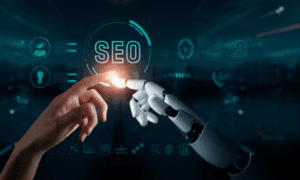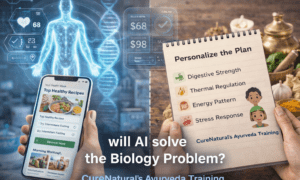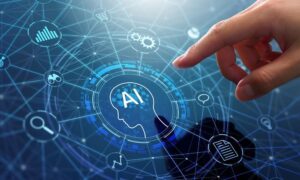Artificial Intelligence (AI) has been a hot topic for years, but recent advancements in machine learning and natural language processing have brought about a new era of powerful AI tools that are revolutionizing industries and reshaping the future.
From healthcare and finance to manufacturing and logistics, AI is transforming the way businesses operate and improving efficiency, accuracy, and decision-making. In this article, we’ll explore some of the most powerful AI tools and their impact on different industries.
Natural Language Processing (NLP): NLP is a subset of AI that deals with the interactions between computers and human languages. It allows machines to understand and interpret human language, including written and spoken words. NLP is already being used in a variety of applications, such as chatbots, virtual assistants, and voice recognition software.
In healthcare, NLP is being used to extract valuable information from patient records, such as diagnoses, symptoms, and treatments. This data can be used to identify patterns and trends that can lead to better patient outcomes and more effective treatments.
Predictive Analytics: Predictive analytics uses AI algorithms to analyze historical data and predict future outcomes. It’s being used in a variety of industries, including finance, marketing, and manufacturing, to improve decision-making and increase efficiency.
In finance, predictive analytics is being used to detect fraud, predict market trends, and identify investment opportunities. In marketing, it’s being used to analyze customer behavior and preferences to create personalized campaigns that drive sales.
Robotics: Robotics is another area where AI is making significant strides. Robots are being used in manufacturing and logistics to automate repetitive tasks and increase efficiency. They can also perform tasks that are too dangerous or difficult for humans.
In healthcare, robots are being used to assist with surgeries, monitor patients, and even deliver medication. In agriculture, robots are being used to harvest crops and improve yields.
Autonomous Vehicles: Autonomous vehicles are perhaps the most visible example of AI in action. Self-driving cars and trucks are being developed by companies like Tesla, Waymo, and Uber to reduce accidents and improve transportation efficiency.
In logistics, autonomous vehicles are being used to deliver goods and reduce transportation costs. In agriculture, they’re being used to plant and harvest crops more efficiently.
The benefits of these powerful Artificial Intelligence tools are clear: increased efficiency, improved accuracy, and reduced costs. However, there are also concerns about job displacement and privacy issues. As AI continues to evolve and become more powerful, it’s important to consider both the benefits and the potential risks.
While the benefits of AI tools are undeniable, there are also concerns about their impact on society. One of the major concerns is job displacement, as AI can automate many tasks that were previously done by humans. However, many experts believe that AI will create new job opportunities, particularly in areas like data analysis and software development.
Another concern is privacy, as AI tools can collect and analyze vast amounts of data. Companies must be careful to ensure that the data they collect is used ethically and with the consent of users. Governments are also exploring new regulations and policies to protect individuals’ privacy in the age of AI.
Despite these concerns, the potential benefits of AI are too significant to ignore. It has the potential to improve healthcare outcomes, increase efficiency in manufacturing and logistics, and reduce transportation costs. As AI continues to advance, we can expect to see even more powerful tools and applications that will transform the way we live and work.
Another important aspect to consider when discussing powerful AI tools is the need for transparency and accountability. It’s essential to ensure that AI algorithms are fair and unbiased, and that their decisions are explainable and accountable. This is especially important in areas like healthcare, where AI tools are used to make life-or-death decisions.
Moreover, AI tools must be developed with ethical considerations in mind. This means ensuring that they do not perpetuate or amplify biases, discrimination, or inequality. Companies and developers must take responsibility for the impact of their AI tools on society and ensure that they are used for the greater good.
Finally, it’s important to recognize that AI is not a silver bullet for all of society’s problems. It’s just one tool in a broader toolkit for solving complex challenges. We must also invest in education, social services, and other critical infrastructure to address the root causes of these problems.
In conclusion, the rise of powerful AI tools has the potential to transform industries and improve our lives in countless ways. However, as with any transformative technology, there are potential risks and challenges that must be addressed. According to CTN News Transparency, accountability, and ethical considerations must be at the forefront of AI development to ensure that these tools are used for the greater good. As we continue to explore the possibilities of AI, it’s important to approach it with a critical and thoughtful eye.



































